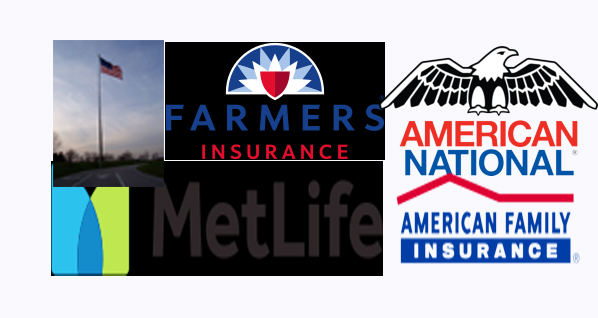Insurance is one kind of service that people purchase to prevent themselves from losing money. In return, if anything happens to the insured person or item, the company that sold the insurance will reimburse the money. To prevent unanticipated losses, this is a step in risk management. By paying premiums to the insurance companies, the insured person or organization is free from all possible losses and the insurance companies increase their capital by collecting premiums from numerous insured persons or organizations. In addition to the cooperation of the insurer, one can save money privately and be free from the worries of potential risks. There are certain principles to be followed in determining the insurance process, type of loss, and compensation.
Life Insurance:
A policy for shifting or preventing the cost, loss, or danger of death is life insurance. Life insurance in the modern age serves as an effective means of relieving the insured or his family members from financial loss in case of death or old age of the insured.
Life insurance is a contractual arrangement in which the insured or the insurance company promises to pay a pre-determined amount after a certain period or after his death in return for paying a premium to the insured. Life insurance is thus a modern contract executed between the insured and the insurer in return for a fixed premium payment which the insurer promises to pay to the insured or his heirs or his nominee after his death or at a specified period.
Marine insurance:
The contract executed by the insurer with the guarantee of compensation in case of damage to the vessel, ship's goods or freight insurance by a hazard is called naval insurance or marine insurance. According to Halsbury, a contract that promises to compensate for maritime damage, in a certain way, up to a certain limit, is called maritime insurance.
Fire insurance:
R.S. According to Sharma, fire insurance is a contract where one party agrees to bear the risk of a certain amount of financial loss to the other party in return for compensation which means the loss or destruction of something by fire.
According to MN Mishra, fire insurance is a system that compensates for fire.
Purpose of fire insurance:
1. Compensation: One of the main purposes of fire insurance is to compensate for the damage caused or destroyed by fire. If the insured property of the insured is damaged in a fire, the insurer pays appropriate compensation.
2. Investment Creation: Insurance companies reinvest a large portion of their fire insurance premiums in various businesses and industries.
Insurers engage in the insurance business for such investment.
3. Risk Sharing: Since fire insurance also distributes one's loss among other people in the society, it alone protects a person from major losses. 4.
Other Insurance Supplement: Life Insurance, Fire Insurance, Naval Insurance, Accident Insurance, etc. No insurance can handle the overall insurance activities alone. Therefore, Fire Insurance is responsible for taking responsibility and providing services to a particular part of the insurance as a complement to other insurance.
Fire insurance classification:
1. Valuated insurance policy: A fire insurance policy that is accepted without determining the value of the insured material at the time of execution of the contract is called a valuated insurance policy. The condition of valuation of the property is recorded after such an insurance policy.
2. Unvalued insurance policy: A fire insurance policy that is taken without determining the value of the insured material at the time of execution of the insurance contract is called an unvalued insurance policy. The condition of valuation of the property is recorded after such an insurance policy.
3. Specific insurance policy: The contract is executed at a fixed price on the property of such fire insurance policy and the insurer pays a fixed price in case of loss.
Even if it is burnt, the insurer compensates the loss of three lakh rupees.
4. Overall insurance policy: In addition to fire insurance, such insurance policy guarantees the loss of certain assets due to damage caused by the stolen load worker.
5: Fire Extinguisher Insured: If the fire extinguisher is damaged and the insured property and property is damaged, the insurance policy taken to cover it is called Agni Nibarani Insurance.

What Is Insurance & its types?
The insurance provider and the client enter into a legal arrangement known as insurance. In this case, the insurance agent agrees to compensate the client for any damages incurred by the insurer contingency occurring. In exchange for the insurer's promise, the client pays a premium.
What are the 7 types of insurance?
There are different types of insurance such as a) life insurance, b) property insurance, c) fire insurance, d) social insurance, e) liability insurance, f)guarantee insurance, g) marine insurance is prime, etc.
What is insurance money called?
An insurance premium is the sum of money paid for a policy by a person or a company. Premiums are charged for health, auto, home, and life insurance plans. The premium is money for the insurance provider until it's paid.
What are the main five parts of an insurance policy?
An insurance policy is a paper that spells out both the insured's and the insurer's responsibilities. Declarations, insuring arrangements, definitions, exclusions, and conditions are the five parts of any insurance policy. Many initiatives have a sixth section called endorsements.
Which type of insurance is best?
Term insurance is the simplest and most economical form of life insurance, allowing you to choose a high level of coverage over a set time.
What kind of insurance do I need?
The four forms of insurance that you need to have, according to most professionals, are life, dental, long-term impairment, and auto insurance. Often consult with your employer first to see if coverage is eligible. If your company does not have the type of policy you need, get quotes from many different insurance companies.
What are the 3 types of car insurance?
Liability, comprehensive, and accident insurance are now the three forms of auto insurance that seem to be widely accessible.
Other forms of auto insurance coverage, such as personal injury compensation and uninsured motorist coverage.
What are the features of insurance?
Features of Insurance
- Compensation for Unfortunate Losses.
- A device that allows people to work together.
- Value of Risk.
- Sharing of Risk.
- Payment on a contingency basis.
- A significant number of insured individuals
What is a premium?
The insured pays a premium to the insurer regularly to cover his risk. The premium is the amount charged by the insurer for taking this risk. The premium is determined by a variety of factors such as age, the form of job, medical conditions, and so on. The majority of insurance firms make money in two ways: by raising premiums in return for insurance coverage and then reinvesting those premiums in other interest-bearing assets. Insurance firms, like all private enterprises, strive to market efficiently while reducing admin expenses.
Why do insurance companies deny insurance claims?
Insurance firms reject legitimate and fair claims for a variety of reasons. Your claim could be dismissed if the accident might have been prevented or if your actions contributed to the accident. If you participate in behavior that makes your policy ineffective, an insurance provider will refuse your claim.
How do I organize my insurance policy?
1. Sort the records into categories based on the type of insurance and policy.
2. For each regulation, sort the details.
3. Keep identical papers in various policies in the same color directory, such as all records pages in blue and all claims documents in gray.
4. Upon on oversized tabs, write the names of the file formats.
